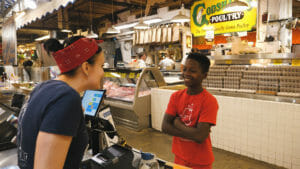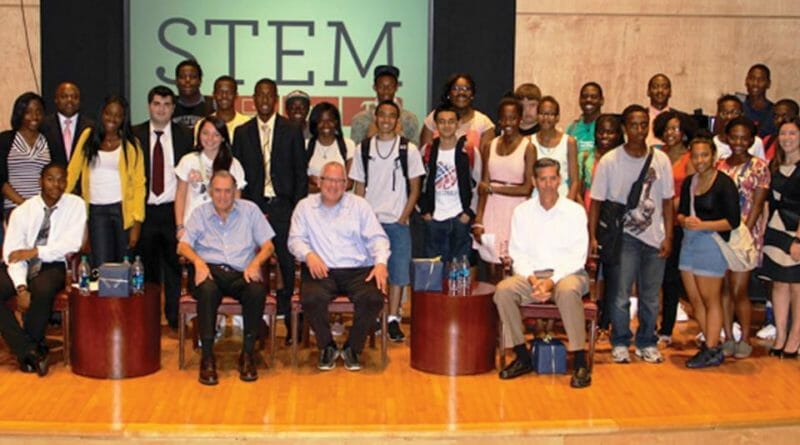Hungry Education Franklin STEM Learners
Hungry Education provided classes, workshops, and camps to children and their families throughout the Delaware Valley Region. During that time, we worked with hundreds of families from diverse backgrounds. We used a combination of experiential knowledge as food educators and parents, and research to design our classes. Our approach to food education was divergent and unique. Rather than focusing exclusively on nutrition or limiting food experiences to the decoration of cookies and cupcakes, we had children as young as two learning about food and their relationship to food.
Our classes defined new ways of food education for children. We offered a play-based approach for very young children and their families as a way to build early positive relationships and, equally important, create stronger connections between families around food experiences. For older children, Hungry Education took an experiential learning approach which not only introduced children to food and cooking but also broader issues surrounding food.
While we were very proud (and still are) of our work in food education, profitable growth in the space of children’s education is hard to achieve. In 2017, Hungry Education began working with businesses in Philadelphia, designing educational programming for their clients and customers. In 2018, we made the hard decision to end our direct-to-consumer services.
Our work of three years with families has served us well. We have been able to test out our program design work in real-time and make crucial adjustments. We have gained considerable insights into how families eat, shop, and prepare food and what parents are looking for in terms of their child’s relationship to food. Hungry Education has worked with parents of children with extreme forms of picky eating who long for less struggle for their children. We take all of this experience and information and bring that to the table in our work with companies. Please take a look at our case studies and services to learn more.
She’s worked in education, in the corporate sector, in theater, and in other industries, but a common thread of storytelling ran through all her work, she told Technical.ly. Haupt had been interested in food and storytelling for nearly two decades, and in 2015, launched her B2C business, focused on educating families and children about food relationships. Instead of providing dietary or cooking-related education, the company taught about the “larger story of food and how it connects into all aspects of our lives.”

The company, run by Haupt and a collection of contractors, switched to B2B a few years in, and began working with Reading Terminal Market on how it could create educational programming for the tons of schools that come and visit during field trips, and contributed to the Breaking Bread, Breaking Barriers community programing. She was also exploring experience design for the field of food education when the pandemic hit and halted business.
“People suddenly were focused on disinfecting their groceries — they weren’t coming in to do hands-on learning about food,” Haupt said.
And now in 2022, Haupt has reentered the scene, with some projects especially focused on the future of food. Haupt began working with the Franklin Institute’s STEM Scholars Program to understand, conceptualize and create solutions around food waste and sustainability. The program serves 14- to 18-year-olds who are exploring careers in STEM, and Hungry is working with the Drexel Food Lab on the summer 2022 curriculum.
“We’re really unusual in that we focus on food relationships, history, science, tech, engineering,” Haupt said. “There’s so much that goes into our relationship with food.”
The program will address how future generations will face challenges related to food, including meeting future food demands, issues of food waste and how reducing food waste can lessen the impact of climate change. This summer, students will use the forward-thinking and solutions-based program to solve the waste challenge, working alongside industry professionals to learn about the widespread issue of food waste and to design “workable solutions.” The program is hands on, and includes field trips, cooking lessons, and guest speakers and students will be able to use STEM skills to identify current issues and solve future problems.

